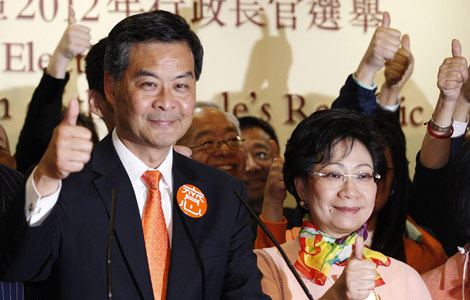 |
|
|
|
|||||||||||
BEIJING - ?China and Indonesia seek to strengthen collaboration and coordination within the cooperative framework of the Association of Southeast Asian Nations (ASEAN).
The two countries voiced the willingness in a joint statement issued in Beijing on Sunday as Indonesian President Susilo Bambang Yudhoyono wrapped up a three-day state visit to China.
According to the statement, China and Indonesia expressed commitment to further broadening and deepening political, security, economic, social and cultural cooperation between China and ASEAN.
China reaffirmed its support for the ASEAN integration, the building of ASEAN community and ASEAN's centrality in regional cooperation.
The joint statement also touched on the South China Sea, six-party talks, Myanmar and some other regional affairs.
The two sides expressed commitment to working towards the eventual adoption of a code of conduct in the South China Sea.
Concerning the six-party talks on the nuclear issue of the Korean Peninsula, they supported all parties concerned in promoting the talks process.
As to Myanmar, both sides welcomed the significant positive developments in Myanmar and underscored the importance of maintaining a strong momentum in this regard.
They reiterated their call for the lifting of economic sanctions on Myanmar which would significantly contribute to the socio-economic development of Myanmar, according to the statement.
The two countries shared concern of the recent developments in the Middle East and North Africa and urged all parties concerned to immediately end all acts of violence and called for inclusive peaceful dialogue and political settlement in finding mutually acceptable solutions reflecting the will and aspirations of their peoples.
They also expressed "profound concern" of the impacts of the continued tension in the Strait of Hormuz, especially the rise in oil prices, saying the rise "creates inflationary pressure, which in turn, both directly and indirectly, raises poverty level in developing countries."
Wu Ying, iPad, Jeremy Lin, Valentine's Day, Real Name, Whitney Houston, Syria,Iranian issue, Sanyan tourism, Giving birth in Hong Kong, Cadmium spill, housing policy

|

|

|

|

|

|